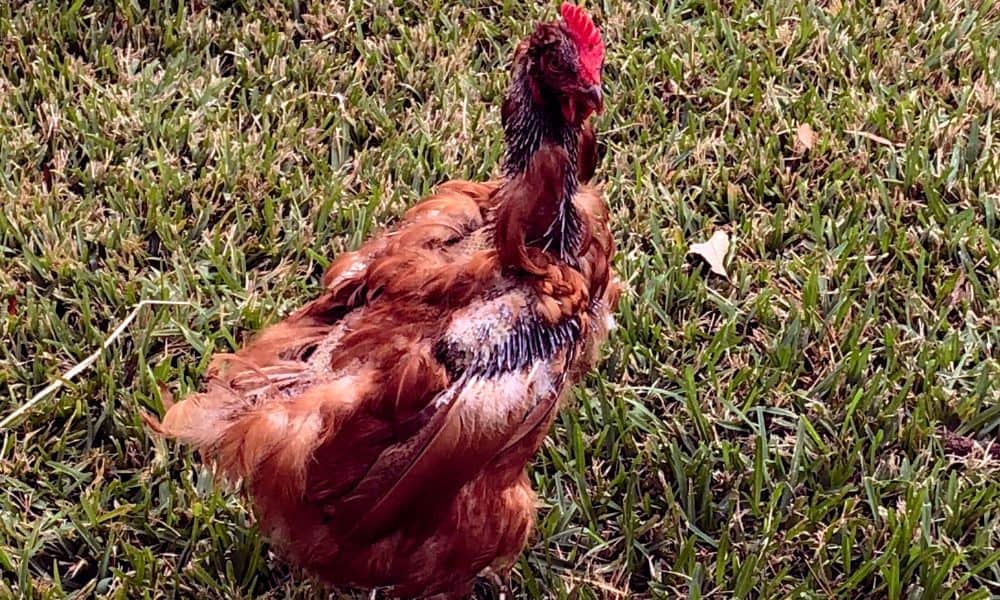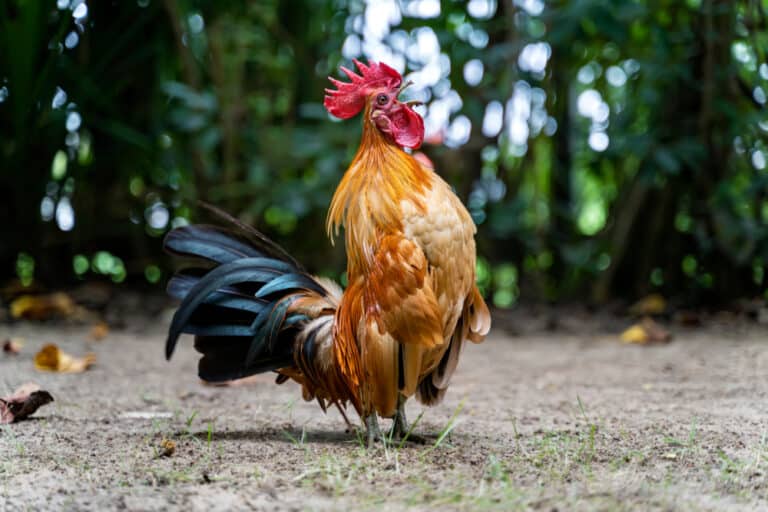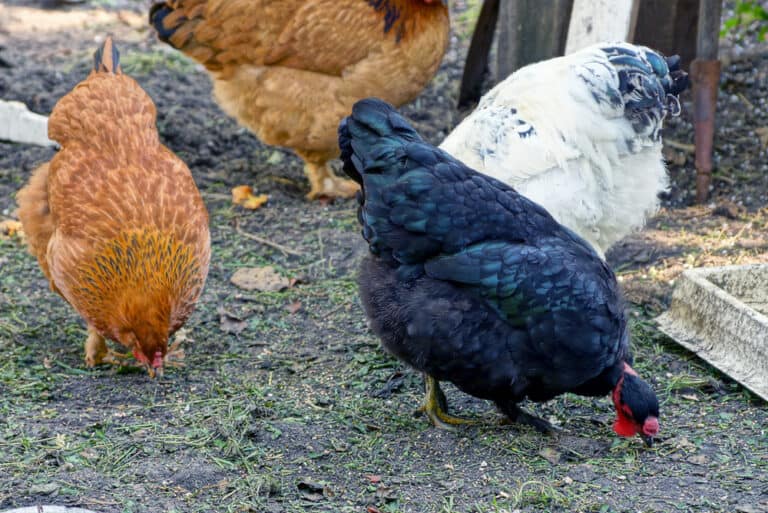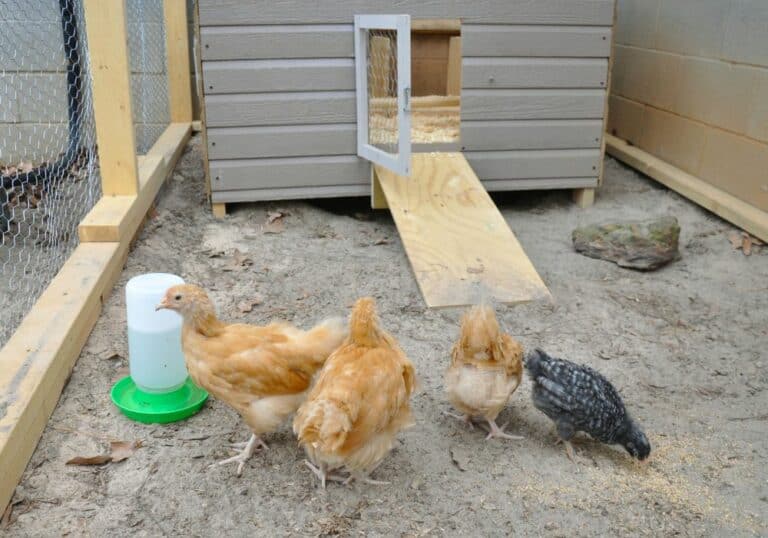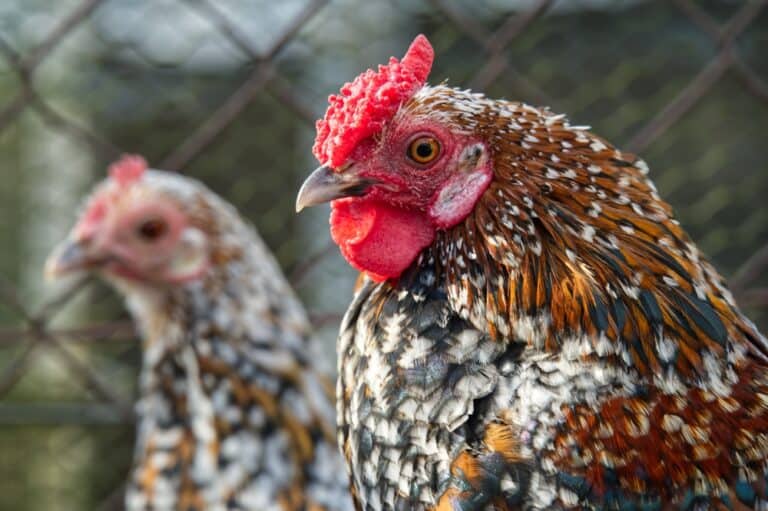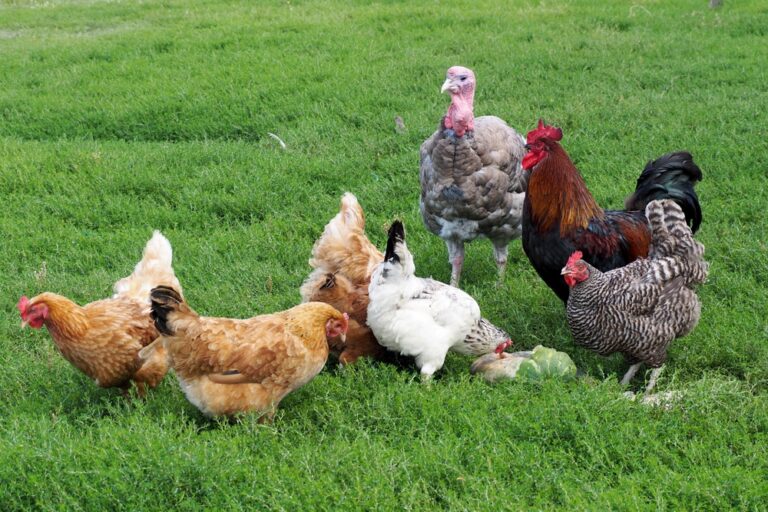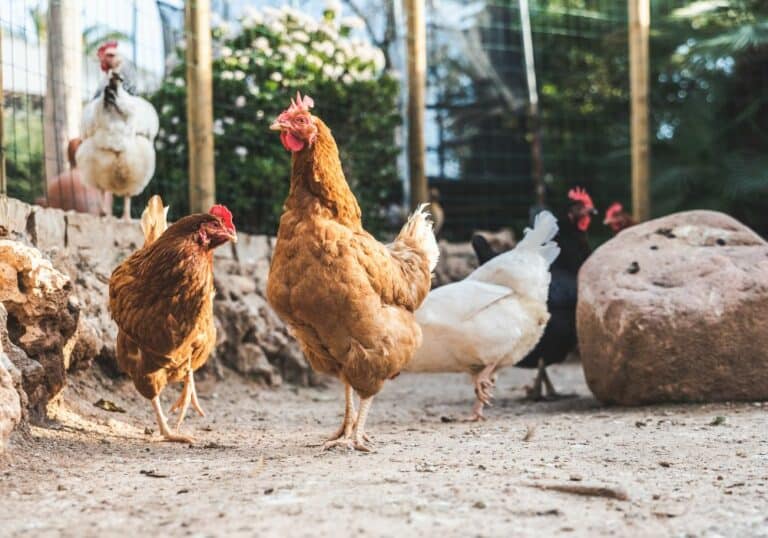Most chicken keepers take great care to ensure their flocks are happy and healthy, so when birds start losing their feathers, it can be both unsettling and alarming.
There are many reasons for feather loss in chickens, and some are natural while others require more attention. So to help you understand why it’s happening and what actions you need to take, in this post, we answer the question, why is my chicken losing her feathers?
Why Is My Chicken Losing Her Feathers?
1. Molting
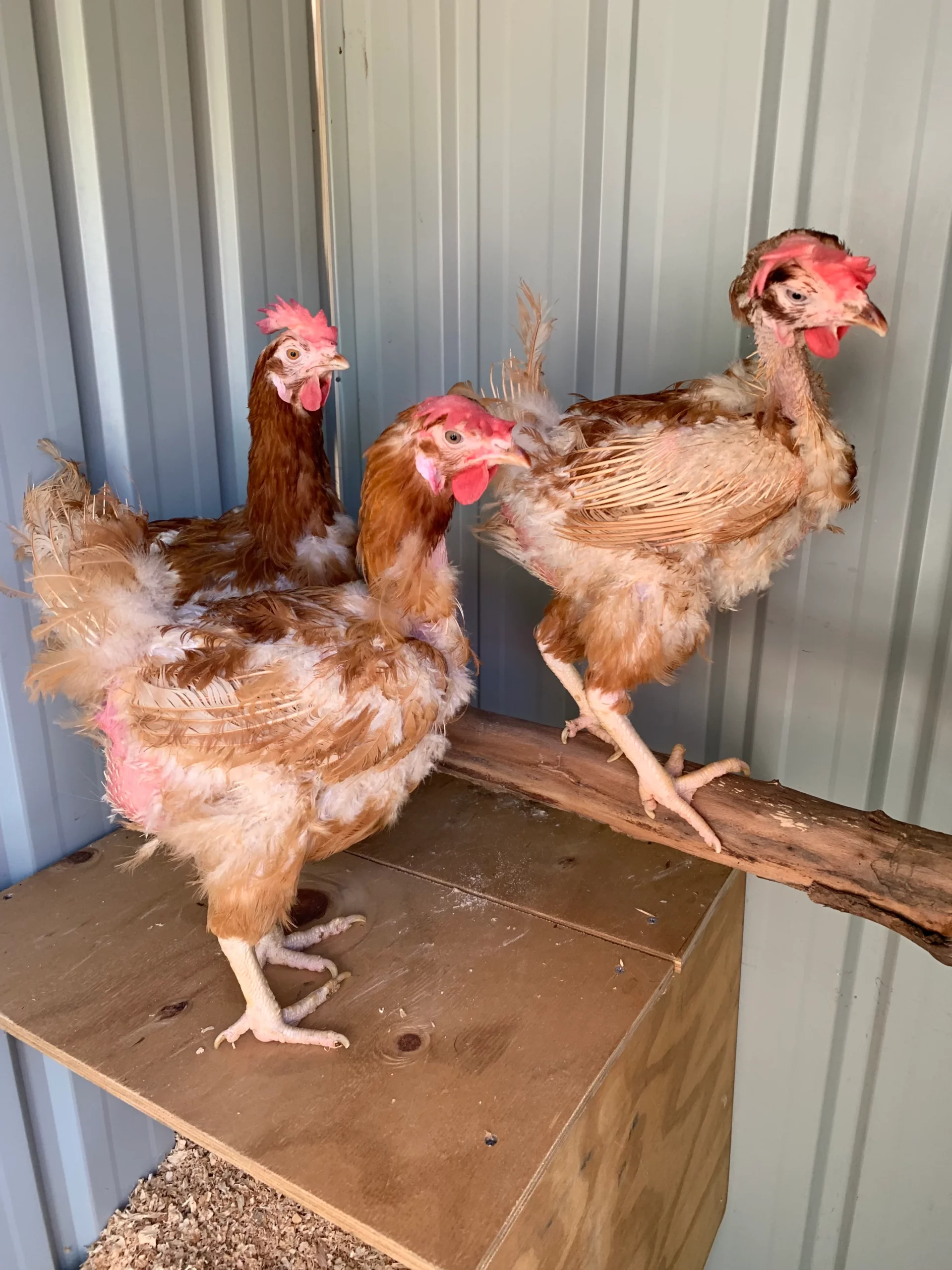
One of the most obvious reasons for chickens to lose their feathers is the annual molt.
Chickens usually molt in the fall when they lose their old feathers and grow new ones ready for the winter. Depending on what time of year they hatch, their first molt usually starts when they are around 15 to 18 months old.
Molting is a natural process, and there’s nothing you can do to stop it. To help chickens through each molt, increase the amount of protein in their feed to at least 20% and handle them as little as possible since emerging pin feathers are painful for chickens.
2. Preening
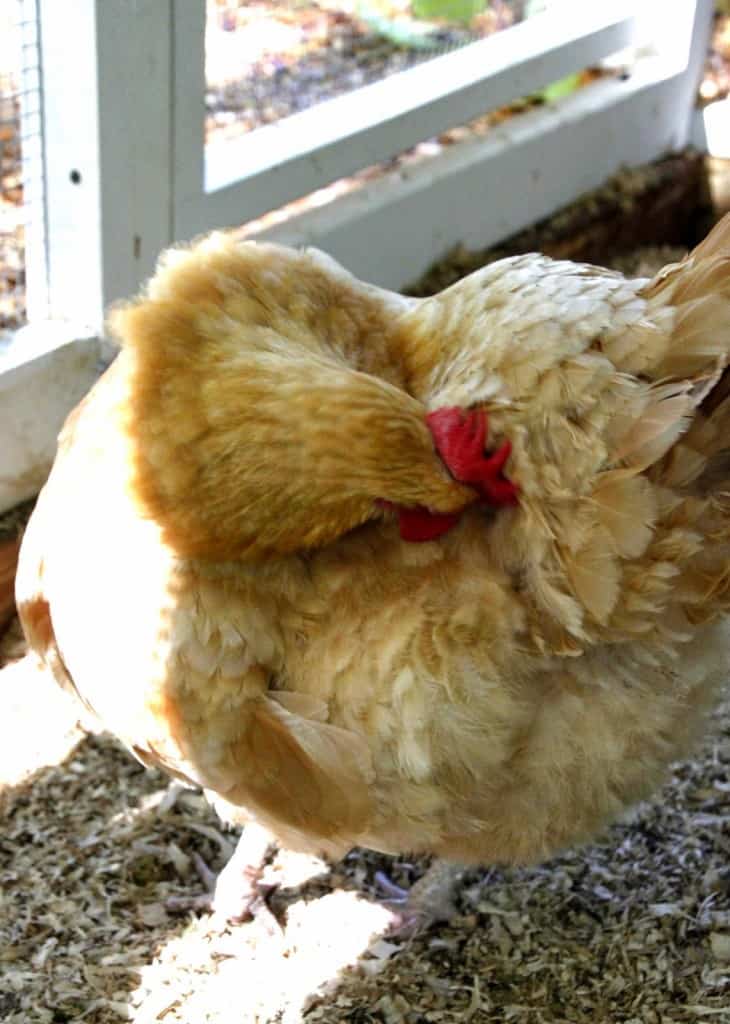
Another cause of feather loss is preening, and this is also nothing to worry about.
Preening is chickens’ way of keeping themselves clean and making sure their plumage is in good condition.
Part of this includes taking oil from the preen gland and spreading it over their feathers, and they will also remove feathers that are in poor condition – this is normal behavior and nothing to worry about.
However, if chickens are actively plucking out large amounts of their own feathers, this could be due to something else such as boredom (see below), in which case you will need to identify the cause and take action.
3. Broodiness
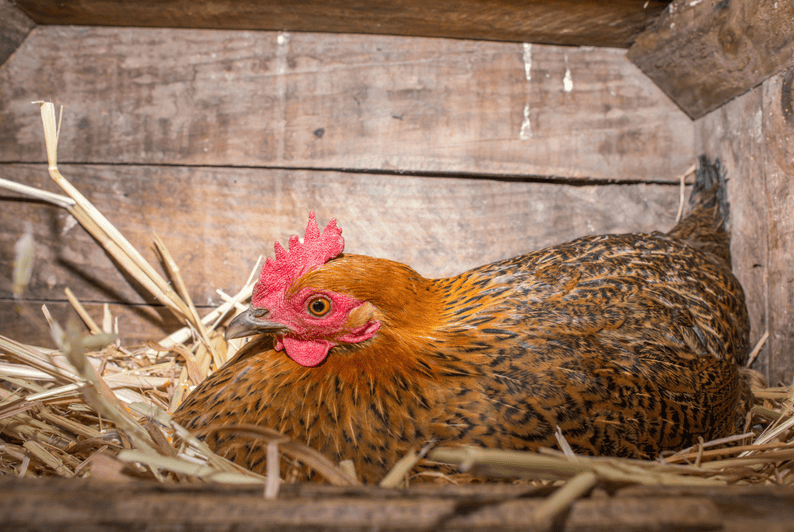
Anyone who keeps chickens quickly learns to recognize broodiness in their hens, and part of hens going broody can involve feather loss.
This is their way of regulating heat and humidity to create the optimal conditions for incubating eggs.
If you want your hens to hatch their eggs, feather loss due to broodiness is nothing to worry about, and you can just leave them to it.
On the other hand, if you don’t want your hens to go broody, you can try various techniques – including isolation – to encourage them to snap out of it.
4. Predators
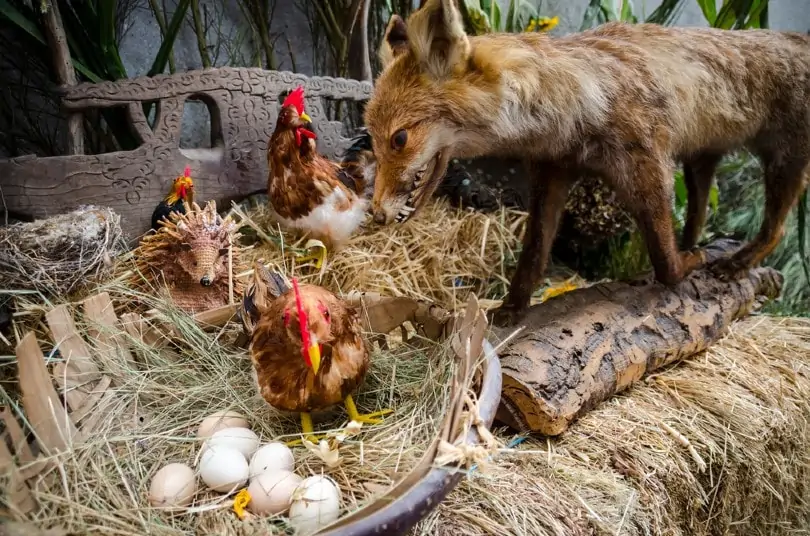
Stress is a common cause of feather loss in chickens, and one of the most common stress factors is predators.
If a chicken is attacked by a predator and escapes, the chicken may lose feathers in the physical attack, but the stress of the experience may also cause the bird to go into a mini molt – as well as almost certainly halting egg production too.
In this case, you just need to make sure the affected chicken heals properly from the attack and feels safe and secure – and after a few weeks, the feathers should grow back and egg-laying will resume.
Such an attack can also affect the rest of the flock, and some of your other birds may also lose feathers after seeing one of their flockmates being attacked.
Alternatively, if chickens are aware of predators prowling around at night and perhaps trying to break into their run or coop, this can also stress them and cause them to lose feathers.
In this case, try to drive the predators away to allow the chickens to roost in peace without having to worry about being eaten during the night.
5. Malnutrition
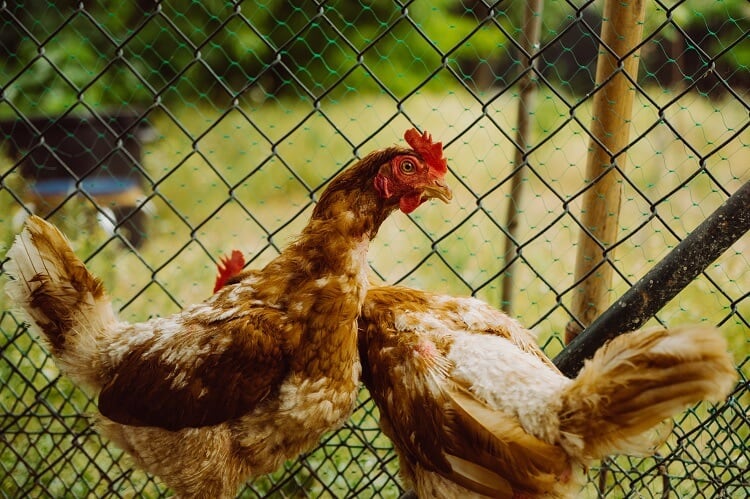
Chickens have very specific nutritional requirements, and if their diet lacks certain nutritional elements, it may cause them to become malnourished, which can lead to feather loss.
Commercial chicken feed is specially formulated to meet all their nutritional requirements, but if you mix your own feed, you need to ensure that the food you give them contains all the necessary vitamins and minerals along with enough protein.
If you feed your chickens commercial feed but suspect they are malnourished, you could consider changing to a different brand.
Also, remember that chickens should receive no more than 10% of their overall diet in the form of supplementary snacks – 90% of their food should come from their main feed, and any less can cause them to miss out on vital nutrients.
6. Parasites
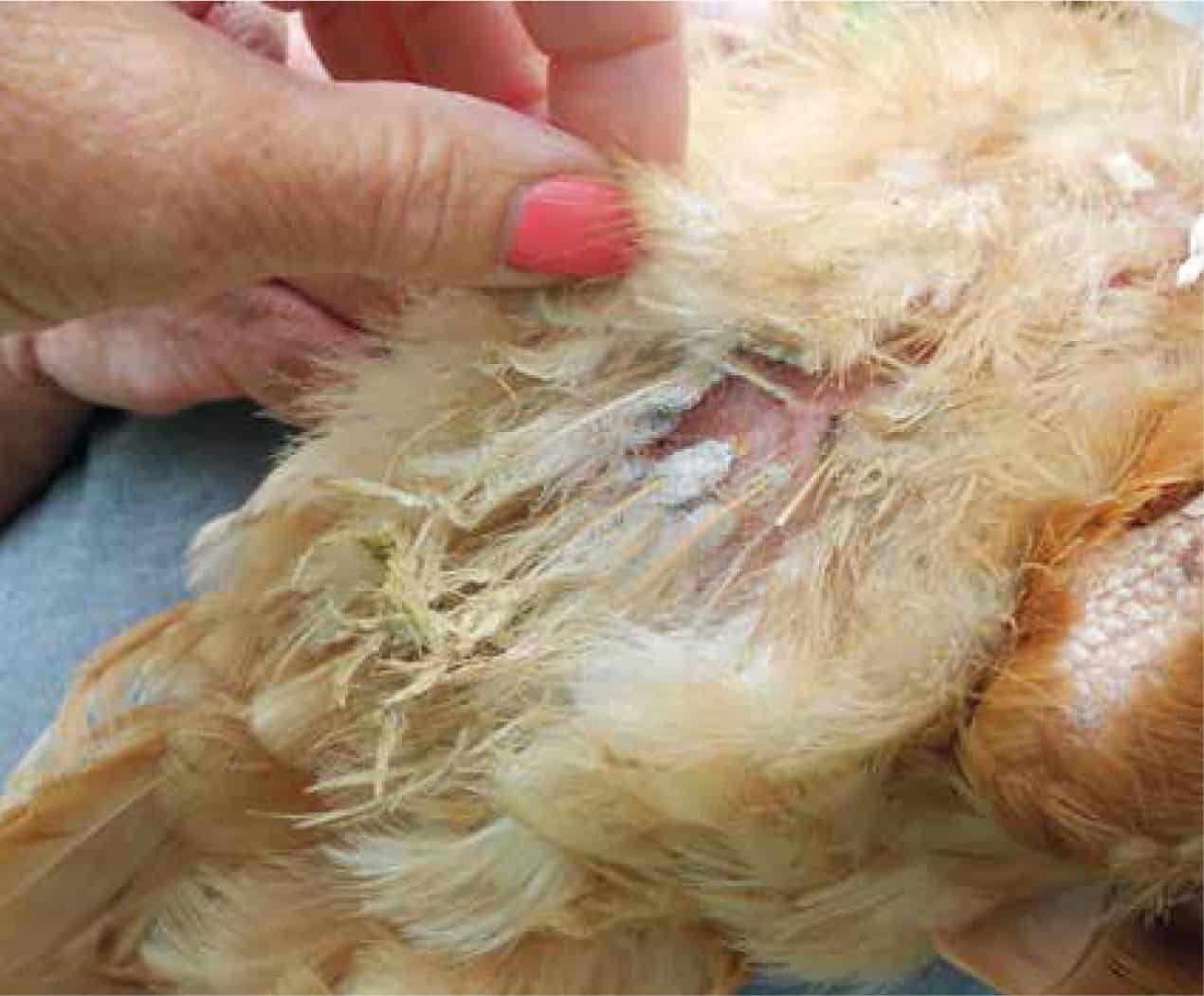
Chickens are susceptible to several types of parasite, including lice and mites, and a serious infestation can lead to feather loss.
Lice don’t feed on chickens’ blood but rather eat dead skin cells from chickens’ bodies.
Red mites, on the other hand, suck chickens’ blood and in serious cases may cause anemia or even death.
Depluming mites are another kind of mite that attacks the follicles where the feathers grow, often causing them to fall out.
The solution is to check your birds for parasites regularly and to treat them with poultry dust as soon as you spot any parasites to nip infestations in the bud before they get out of hand.
7. Illness
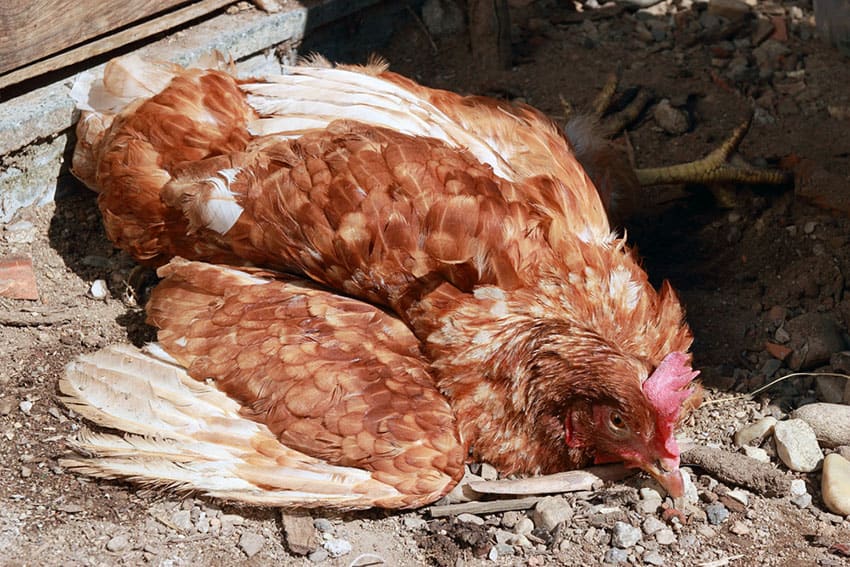
A number of illnesses can be responsible for feather loss, and common ones include fowl pox and cutaneous Marek’s disease. If a chicken is hunched up, puffs up its feathers, appears drowsy or otherwise seems under the weather, the best option is always a trip to see a vet.
Another possibility is vent gleet, a fungal infection that can cause feather loss around your chickens’ behind.
As well as the loss of the tail feathers, you will be able to spot this nasty condition by redness or swelling around the area of the chicken’s vent, a yellow-white discharge and a particularly foul smell.
You can treat it by preparing a bowl of warm water with two tablespoons of unscented Epsom salts dissolved in it and then standing the chicken in the water for at least ten minutes.
After this, remove the chicken from the water, dry the affected area and apply an anti-fungal cream. Repeat the treatment every two days until the infection disappears.
8. Bullying
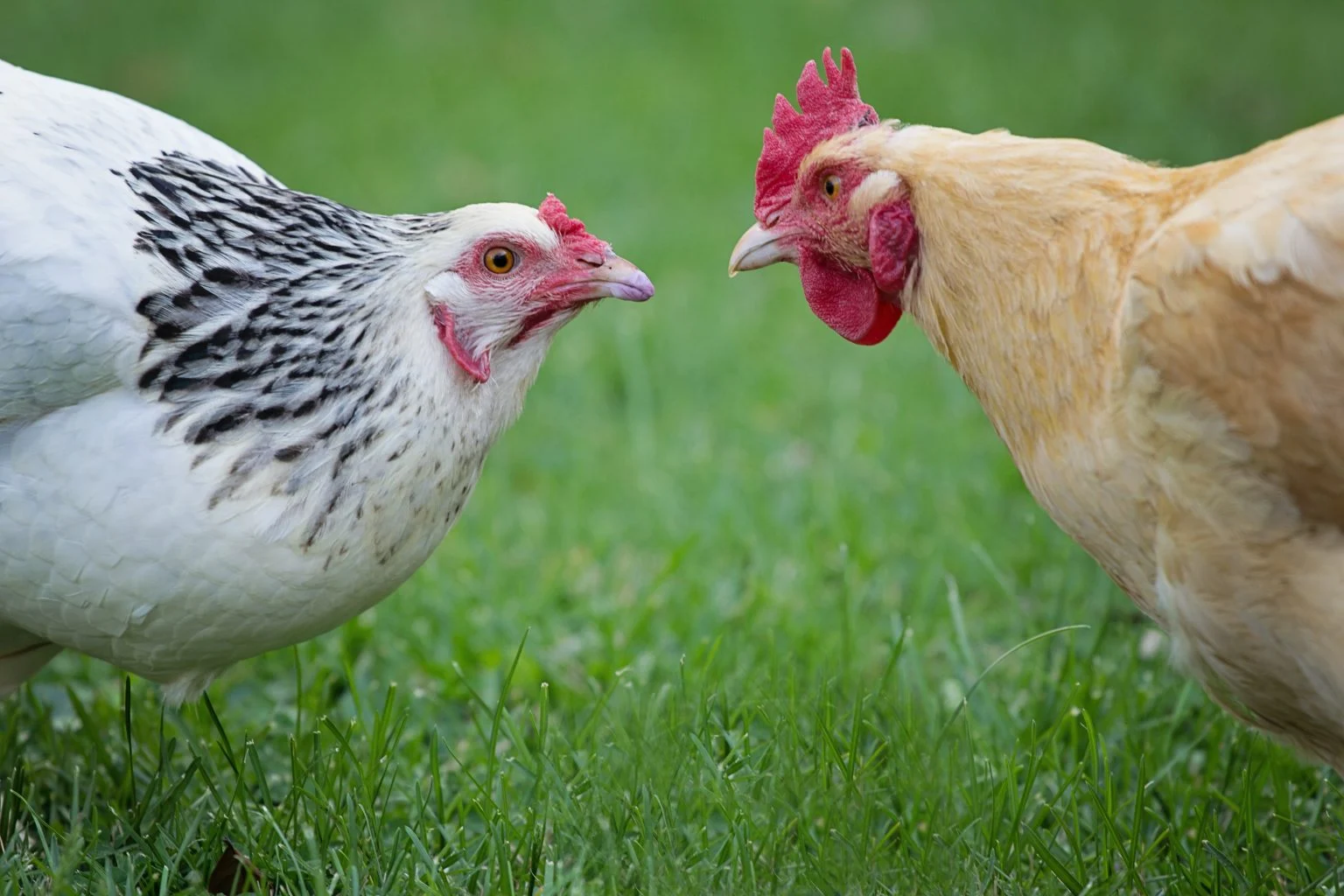
Chickens can sometimes lose feathers due to bullying, and this can be caused by a new chicken being introduced to a flock or through overcrowding.
When a new chicken is introduced, a new pecking order needs to be established, and this may lead to confrontations – and sometimes chickens will pull out each other’s feathers.
If chickens don’t have enough space, this can also lead to confrontations – and cramped conditions and bullying can also become stress factors that lead to feather loss.
To resolve this, make sure chickens have enough living space – and if you have a bully in your flock, you may need to remove the offending chicken until it learns to behave.
9. Boredom
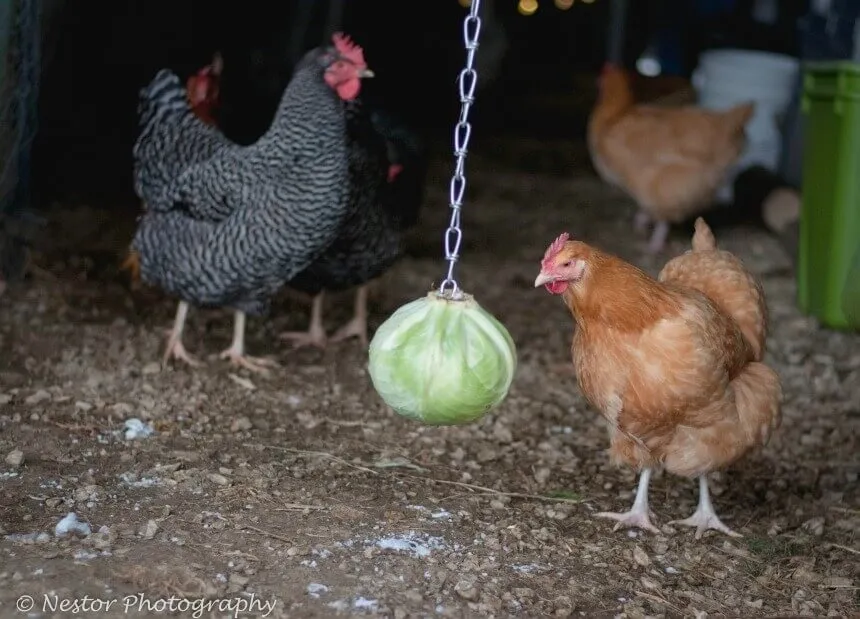
Although many people don’t think of chickens as being particularly smart, they are surprisingly intelligent creatures, and if they don’t have plenty of things to stimulate them, they can become bored.
This can lead to boredom behaviors, which may include things like vandalizing their coop and run – as well as pecking at other chickens or pulling their own feathers out.
The solution to this is to make sure your birds have plenty to do – provide places for dust baths, encourage foraging behavior by spreading food on the floor, add an assortment of perches and swings to their runs and generally make sure they have plenty to do each day.
Remember, as we mentioned above, preening and removing the odd damaged feather is normal behavior – but pulling out feathers through boredom is something else entirely, and if you suspect this is what is happening, you need to take steps to rectify the situation.
10. Mating
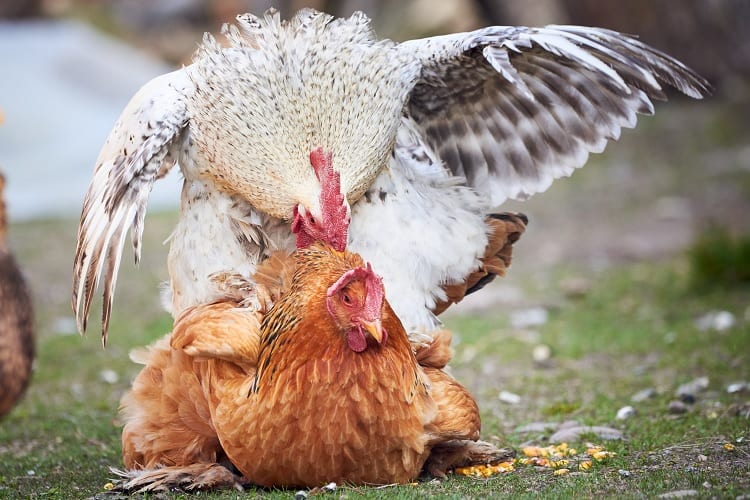
Another cause for hens to lose feathers on their backs and necks can be excessive interest from a male.
When roosters mate with a hen, they hold onto the hen’s back and may pull out feathers or even injure her in the process.
Keep an eye on your roosters’ behavior, and if you find they are becoming a little overzealous with the hens, you might consider separating them. Alternatively, you can fit a “hen saddle” to a suffering bird to protect her.
11. Other stress factors
Any other stress factors can also cause your chickens to lose their feathers.
This could include things like excessive noise, bright lights, moving to a new coop, excesses of heat or cold or any change in routine.
Chickens thrive when they know what to expect each day, so providing them with regular food and drink in a safe and peaceful environment will help keep them in the best possible health.
If you do need to change their routine, try to make it as painless and stress-free for them as possible – and once they settle back into their new routine, their health should improve and any lost feathers should quickly grow back.
Find out why and take action if necessary
As we have seen, there are several possible reasons for a chicken to lose its feathers, and while some are natural and nothing to worry about, others require more urgent attention.
The first thing to do is to work out why it’s happening and then to determine which action, if any, is necessary – and if you are ever in any doubt, the best option is always to take your chickens to see a vet.

